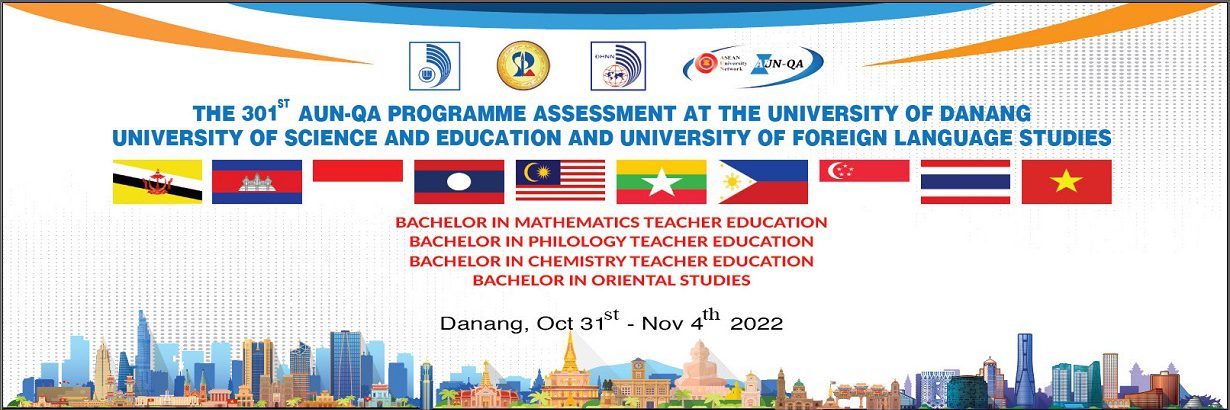BRIEF INFORMATION OF THE UNDERGRADUATE PROGRAM IN VIETNAMESE LANGUAGE AND CULTURE
- Program Objectives
1.1 General Objectives
The undergraduate program in Vietnamese Language and Culture equips students with basic, systematic and practical knowledge of Vietnamese language and culture. Also, students will be equipped with in-depth knowledge of history, society, economics, and political systems of Viet Nam to be applied in research and professional contexts. In addition, students are expected to develop ethical and professional working attitude and satisfactory health to work efficiently in the fields of Vietnamese language and culture to meet the labor market needs of graduates in the era of economic integration.
1.2 Specific Objectives
- provide students with comprehensive language knowledge (phonetics, vocabulary, grammar, etc.); origins and features of Vietnamese language; relations between language and culture; communication cultures, channels, forms, and nature; communication patterns in a family, village, and society in Viet Nam.
- provide students with basic knowledge of history, culture, economics, political system and geography of Viet Nam from the dates of establishment to the present to understand development trends of Viet Nam.
- enrich students’ knowledge of the formation of Vietnamese customs, traditions, beliefs, religions and festivals; typical customs, practices of each region and locality.
- enrich students’ knowledge of economic development according to different natural conditions in each region in Viet Nam.
- develop students’ professional skills necessary in different communication contexts.
- develop students’ self-study and research skills so that they can further their knowledge at higher levels or work in research centers, agencies, businesses, political organizations, economy, educational institutions in Viet Nam.
- Program Expected Learning Outcomes
Graduates of Vietnamese Language and Culture program are expected to be equipped with good skills, abilities and attitude to:
PLO1: apply knowledge of Vietnamese social sciences and humanities in working.
PLO2: analyze issues and phenomena related to linguistic, cultural and religious characteristics of ethnic groups in Viet Nam.
PLO3: develop practical and research skills related to Vietnamese language, culture, history and society in working and in daily life.
PLO4: develop independent thinking, critical thinking and teamwork skills.
PLO5: construct life-long learning as a skill for comprehensive personal development.
PLO6: apply Vietnamese communication skills in professional and real life activities.
PLO7: apply legal, professional, ethical, civil responsibilities and obligations in real life in Viet Nam.
- Curriculum Structure
|
|
Knowledge bloc
|
Course Name
|
No. of credits
|
|---|---|---|---|
|
3.1
|
General Knowledge
|
|
|
|
3.1.1
|
Marxist and Lenninst Theories and Ho Chi Minh’s Thought
|
Basic Principles of Marxism and Leninism
|
3
|
|
Marxist-Leninist political economy
|
2
|
||
|
Scientific Socialism
|
2
|
||
|
Revolutionary Paths of the Viet Nam Communist Party
|
2
|
||
|
Ho Chi Minh’s Thought
|
2
|
||
|
3.1.2
|
Social Sciences
|
Informatics
|
2
|
|
Economic and Social Geography of Viet Nam
|
2
|
||
|
3.1.3
|
Physical Education
|
PE 1 (Athletics)
|
1
|
|
PE 2 (Physical Exercise)
|
1
|
||
|
PE 3: (Students choose one of the following)
|
1
|
||
|
PE 4 (Students choose one of the following)
|
1
|
||
|
3.2
|
Specialized Knowledge
|
|
|
|
3.2.1
|
Fundamental Knowledge
|
|
|
|
|
Fundamental Knowledge (Compulsory)
|
Speech training
|
2
|
|
Listening 1, 2, 3
|
9
|
||
|
Speaking 1, 2, 3
|
9
|
||
|
Reading 1, 2, 3
|
9
|
||
|
Writing 1, 2, 3
|
9
|
||
|
Grammar 1, 2
|
6
|
||
|
Fundamental of Vietnamese Culture
|
2
|
||
|
Vietnamese Ethnic Groups
|
2
|
||
|
Vietnamese Language Learning Styles
|
2
|
||
|
Advanced Vietnamese
|
3
|
||
|
Vietnamese language in journalism
|
2
|
||
|
Vietnamese relics and landscapes
|
2
|
||
|
Vietnamese Communication Culture
|
2
|
||
|
Introduction to History of Viet Nam
|
3
|
||
|
Introduction to Viet Nam’s economics
|
3
|
||
|
Modern Viet Nam Political Institutions
|
3
|
||
|
3.2.2
|
Specialized knowledge
|
|
|
|
|
Compulsory
|
Vietnamese Phonetics & Phonology
|
2
|
|
Vietnamese Lexicology
|
2
|
||
|
Vietnamese Syntax
|
2
|
||
|
Linguistics Foundation
|
2
|
||
|
Vietnamese Semantics
|
2
|
||
|
Religions, beliefs and festivals in Vietnam
|
2
|
||
|
Vietnamese Administrative Documents practice
|
3
|
||
|
Methods of teaching Vietnamese as a foreign language
|
3
|
||
Modern Vietnamese Literature |
3
|
||
|
Theories of Interpreting
|
3
|
||
|
Vietnamese Folk Tales
|
2
|
||
|
Electives
|
Indigenous culture of Central Viet Nam region
|
2
|
|
|
Eastern and Western cultural interaction in Viet Nam
|
2
|
||
|
Traditional Art forms of Viet Nam
|
2
|
||
|
Vietnamese for Business
|
2
|
||
|
Vietnamese Pragmatics
|
2
|
||
|
3.2.3
|
Supportive Knowledge (Compulsory/ Elective)
|
Soft Skills
|
2
|
|
Research Methods
|
2
|
||
|
Office administrative secretary skills
|
2
|
||
|
Field trip
|
2
|
||
|
3.2.4
|
Internship and Graduation Thesis (or Graduation Exam)
|
Internship
|
2
|
|
Study 2 specialized graduation courses
|
8
|
||
|
or do Graduation Thesis
|
8
|
||
|
TOTAL
|
131
|
||
- Job opportunities after graduation
Graduates from the Vietnamese Language and Culture undergraduate program can:
- Lecture and conduct research on Vietnamese language and culture issues at universities, colleges and research institutes.
- Work in fields of foreign affairs in diplomatic agencies, journalism and communication agencies, tourism in Viet Nam.
- Work at representative offices for international organizations, governmental and non-governmental organizations in Viet Nam and in other countries.
- Work at join ventures, state-owned and private enterprises.
- Postgraduate opportunities after graduation
Graduates from the Vietnamese Language and Culture undergraduate program can:
- pursue postgraduate study in Vietnamese Language and Culture major and minors.
- access new technologies, self-study, self-research to improve capabilities to meet individual and social needs, and take over management positions in agencies and enterprises.

